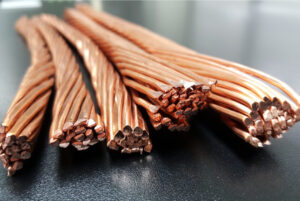
Copper prices hit a new record high on Tuesday amid signs of limited supply and growing demand linked to electrification and investment in data centers.
The price of copper futures for delivery in three months on the London Metal Exchange (LME) rose 3.1% during trading to $13,387.5 per ton. Since the beginning of 2026, the price of copper has risen 6.6%, exceeding $13,000 per tonne for the first time on Monday.
“The rise in copper prices above $13,000 per ton is due to the growing imbalance between structural supply constraints and accelerated demand growth amid electrification and investment in data centers,” notes ING analyst Eva Manti. “Years of underinvestment and prolonged problems at mines have left the market with virtually no room for maneuver.”
The strike at Capstone Copper’s Mantoverde gold-copper mine in northern Chile, which began last week, has heightened concerns about a shortage of copper supply in the global market this year.
Copper is widely used in electrical engineering, pipe manufacturing, alloy production, medicine, and other industries.
Earlier, the Experts Club information and analytical center released a video dedicated to global copper production and leading producing countries – https://youtube.com/shorts/_h8iU50z8C0?si=a-XkgGEfeUxseQNa
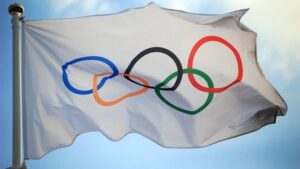
Ukrainian athletes have already received 20 licenses in five sports for the 2026 Winter Olympics in Milan and Cortina d’Ampezzo (Italy), according to the National Olympic Committee of Ukraine (NOC).
“Exactly one month until the start of the main event of the quadrennium! At the moment, Ukrainian athletes have won 20 licenses in five sports (biathlon — 10, cross-country skiing — 5, alpine skiing — 2, short track — 2, figure skating — 1),” the NOC said in a statement.
It is noted that there are still 12 days left until the end of the qualification period — until January 18.
As reported, at the 2026 Winter Olympics (February 6-22) in Milan and Cortina d’Ampezzo (Italy), athletes will compete for 195 medals in 16 Olympic sports.
The president of the National Olympic Committee (NOC) of Ukraine, Vadym Guttsait, expects Ukraine to perform successfully at the 2026 Winter Olympics in Milan and Cortina d’Ampezzo (Italy), as it did at the 2024 Summer Olympics in Paris (France). Ukraine won 12 medals and ranked 22nd in the medal count at the 2024 Olympics in Paris.
Ukraine supports the proposal of Italian Foreign Minister Antonio Tajani to establish a truce during the 2026 Winter Olympics.
Minister of Youth and Sports Matvey Bedny expects the “necessary minimum” number of licenses for Ukrainian athletes to participate in the 2026 Olympics in Italy, and also says that there is hope for success in freestyle skiing and biathlon.
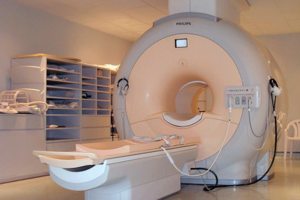
Three medical institutions in Kyiv, Kropyvnytskyi, and Zaporizhzhia received new 1.5 Tesla magnetic resonance imaging (MRI) machines purchased by the state-owned enterprise Medical Procurements of Ukraine (MPU).
According to a press release from MZU, the GE Healthcare Signa Champion MRI machines were received by the Institute of Traumatology and Orthopedics of the National Academy of Medical Sciences of Ukraine in Kyiv, the City Emergency Hospital in Kropyvnytskyi, and the City Emergency and Ambulance Hospital in Zaporizhzhia.
“The purchased models provide high-quality imaging without the use of ionizing radiation and are designed for detailed examination of the central nervous system, cardiovascular system, abdominal and pelvic organs, musculoskeletal system, as well as for the detection of oncological changes,” the Ministry of Health reports.
The devices were purchased by order of the Ministry of Health of Ukraine in 2024. These three MRI machines are the final deliveries of this equipment from the batch purchased under the 2024 budget.
In total, in 2023-2024, the Ministry of Health purchased 33 MRI machines with a magnetic field strength of 1.5 and 3 Tesla. In 2025, the Ministry of Health purchased 20 such devices with a power of 1.5 Tesla with funds from the European Union within the framework of the Ukraine Facility program.
HOSPITAL, Kropyvnytskyi, Ministry of Health, MRI, Zaporizhzhia
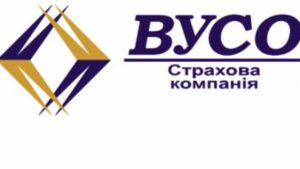
On January 6, the Lviv city municipal enterprise “Lvivvodokanal” announced its intention to conclude with IC “VUSO” (Kiev) the contract of compulsory insurance of civil liability of owners of land vehicles (OSAGO).
As reported in the system of electronic procurement Prozorro, the company’s price offer amounted to UAH 1.161 million against UAH 1.796 million expected cost of purchasing services. Insurance company Kraїna with the offer of UAH 1.177 mln and SG TAS with UAH 1.4 mln also took part in the tender.
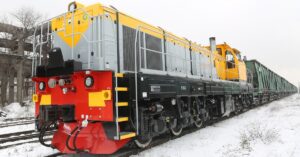
The Kryvyi Rih Mining and Metallurgical Plant PJSC ArcelorMittal Kryvyi Rih (AMKR, Dnipropetrovsk region) continues to restore the operational capacity of locomotives in railway workshop (RW) No. 2 under the GAP-III high-risk equipment repair program.
According to materials in the corporate publication Metallurg, the TEM2U-8679 diesel locomotive was recently repaired, becoming the fifth locomotive to be restored under the GAP-III repair program. The repaired diesel locomotive was put back on the rails at the end of 2025.
It is specified that five locomotives were repaired at Repair Center No. 2 under this program during the full-scale war. The purpose of these repairs is to improve the technical condition, accident-free operation, and ensure the stable operation of locomotives used for the company’s rail transportation.
The first locomotive repaired under this program was the TEM2-2203, manufactured in 1970, and the last of the five repaired locomotives was the TEM2U-8679. Specialists from ZC No. 2 and a contractor replaced the diesel engine parts, cooling sections, and wheel sets on the TEM2U-8679 locomotive, repaired the electrical equipment and cable and wire parts, installed a new battery, and worked on restoring the compressor to working order, etc.
In the future, it is planned to install modern equipment, American engines, control systems, and crew compartments on the locomotives.
ArcelorMittal Kryvyi Rih is the largest producer of rolled steel in Ukraine. It specializes in the production of long products, in particular, rebar and wire rod.
ArcelorMittal owns Ukraine’s largest mining and metallurgical complex, ArcelorMittal Kryvyi Rih, and a number of small companies, including ArcelorMittal Beryslav.